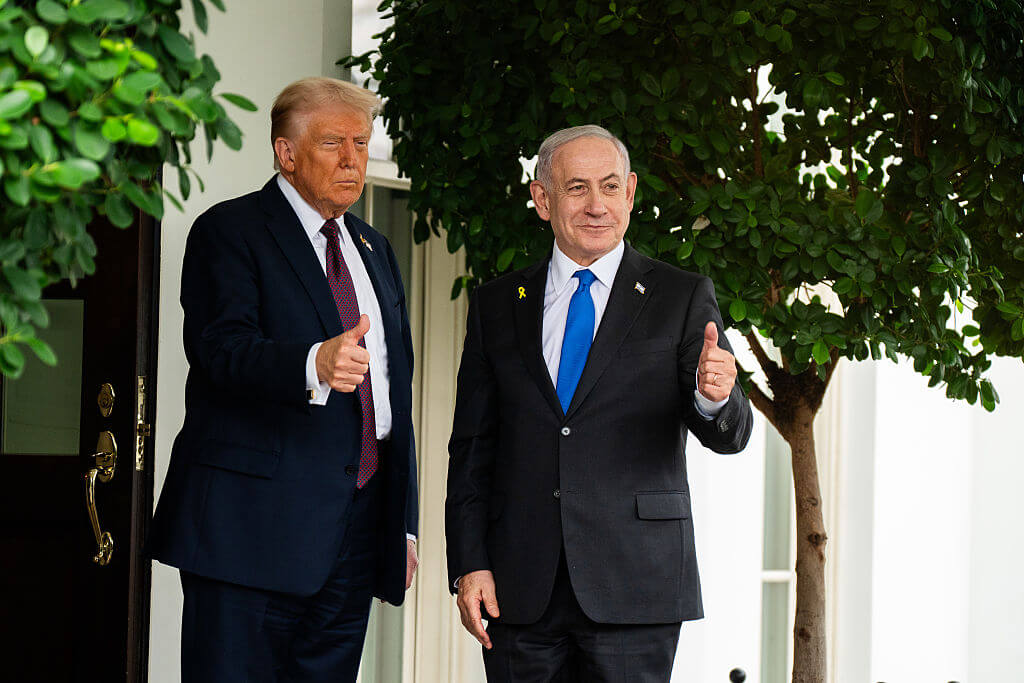On Hanukkah, what story are you telling?

Image by iStock
The popularized story of Hanukkah may be little more than a story. And yet, as we all know, some stories hold greater power than others.
A mythologized telling of Avram smashing his father’s idols lends greater weight to his righteousness and showcases his pining for a transcendent sense of faith. A mega-fish swallowing Jonah whole emphasizes his need for a total transformation and his newfound commitment to living with purpose.
We need stories. They help ground our days in order and meaning. They help us to make sense of the disheartening realities in which we often find ourselves. What are the various portions of our Torah if not stories that have lent our people direction and guidance when we’ve needed it most? We Jews have all but cornered the market on stories with our corpus of prophetic tales, midrash and aggadah that provide layer on top of layer to the foundational stories we’ve long held dear, allowing us to insert our very selves into the Jewish story generation after generation.
Hanukkah has everything a script-writer could ever ask for: a setting laden with historical underpinnings, a compelling backstory, good guys and bad guys, near defeat, unexpected twists, a glimmering finale that leaves viewers’ hearts warmed by the light of hope.
The saga of Judah Maccabee is an amalgam of lore, history, and romance. While Jerusalem was laid siege by King Antiochus in the second century BCE, our beloved Temple desecrated, the heroic machinations of Judah become a way for us to craft a narrative that turns victimhood on its head. By positioning Judah as Judaism’s saving grace, salvaging a people in peril, we can lift themes such as Jewish survival and fortitude in the face of tyranny and prejudice.
The Talmud will famously say little of Hanukkah, instructing us only on how many hanukiyot each household should light and brushing briefly on Hillel and Shammai’s (inevitable) difference of opinion on how to light them. Tractate Shabbat teaches, among other things, that we are to publicize the miracle by making sure the lights can be viewed by passers-by. In the rabbis’ reluctance to dwell on the Hanukkah story, we see signs of their ambivalence toward relying on miracles, promoting instead a Judaism of study, prayer, and action.
Hanukkah, though a relatively minor holiday, becomes a story we choose to elevate. It is a story we intentionally hold up high communally, spiritually, and ritualistically. Even Jews who live without a sense of daily practice find a way to mark Hanukkah.
Some will argue that this happens as a response to the prevalence of Christmas in and around our communities, but I believe we grant collective meaning to Hanukkah because of its legendary and alluring symbolic meaning. We come back to this story once and again precisely because we need hope. We’ve always needed hope. We come back to it because we need to know that the light of moral clarity burns brighter than the magnetic pull of pessimism. We need to know that we are not wrong to encourage our kids to inhabit a mindset of possibility and faith.
If the story of Hanukkah is a story we Jews have chosen to tell for centuries, we might think about the stories we choose to tell ourselves and our kids today. These final weeks of 2020 could tempt us toward an array of possible narratives. There are narratives that cling to shadowy half-truths, conspiracies and misinformation. There are narratives that cling to fear-mongering, ignorance and blame. There are narratives steeped in racism and homophobia. There are narratives that contend that patriotism urges an almost blind allegiance to a popular telling of American history, rather than one that actively includes those who have long dwelled in the margins.
What is the story you are telling at home? What is the story we are telling in our synagogues? What are the stories you are prompting your kids to tell about themselves, their Judaism, and their country at precisely this moment in time? Are you urging them to believe in themselves and their power to enact change in our broken world? Are you urging them to reject narrow mindedness and hold on tight to ideas of freedom? Are you reminding them that there is perspective to be found in the lives of those who preceded us? Are you reminding them that courage is in their DNA? Are you reminding them that our world, though often dark, is also a place of enduring possibility, glowing light and an untold number of miraculous stories?
Benjamin David is the rabbi of Adath Emanu-El in Mount Laurel, New Jersey. Follow him on Twitter and Instagram @RabbiBPD
















